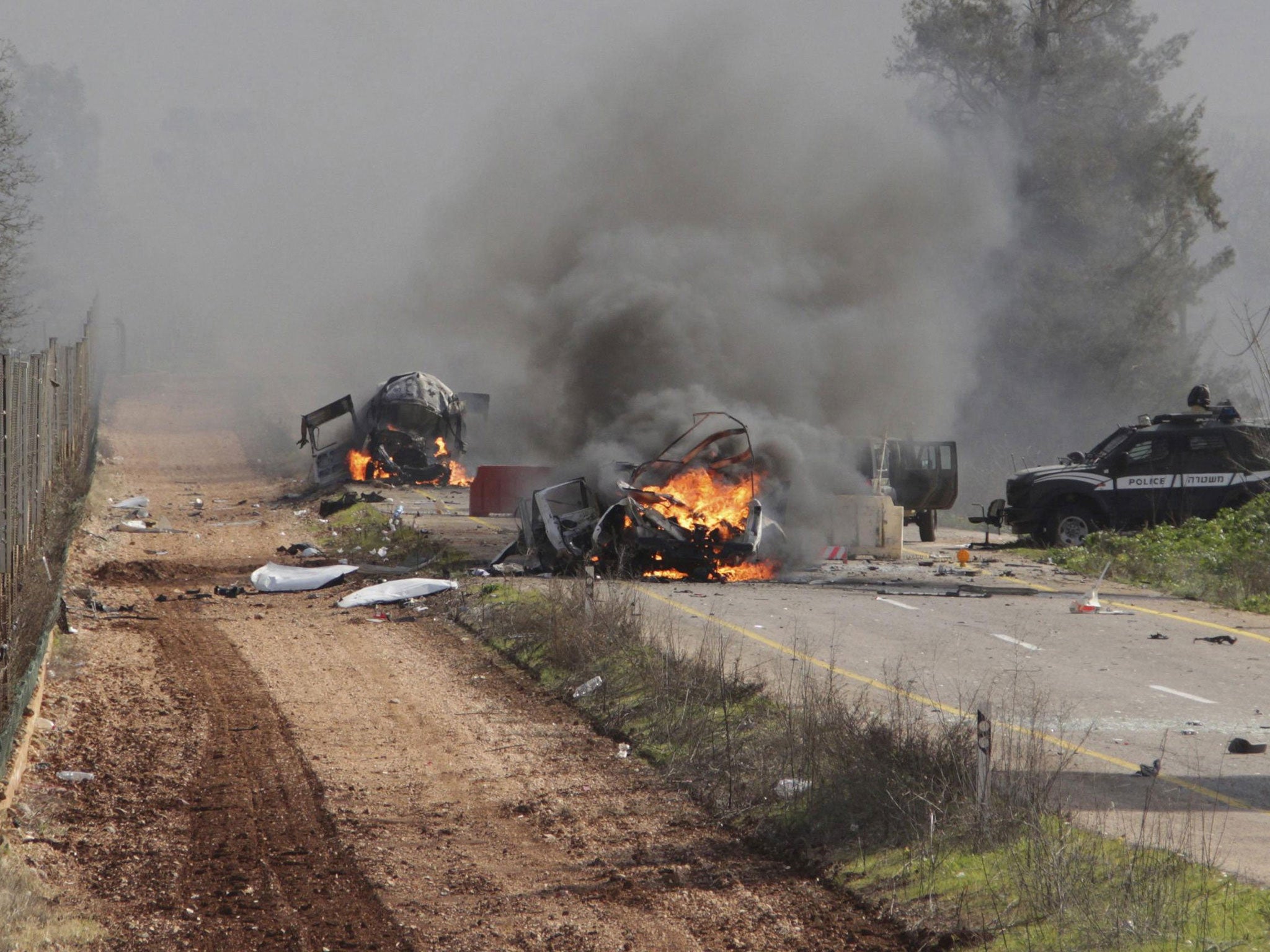Hezbollah Israel convoy attack: Israeli army 'kills Spanish soldier' as UN peacekeepers get caught in retaliatory shelling
Israel says two of its soldiers died in an attack on a military convoy, which has been claimed by the Hezbollah militant group

The Israeli army has reportedly killed a Spanish soldier working with UN peacekeepers on the border with Lebanon, as an exchange of fire took place between the Hezbollah militant group and Benjamin Netanyahu's armed forces.
The Israeli Defence Force (IDF) said two of its soldiers were killed in an earlier anti-tank missile strike on a military convoy, which was accompanied by shelling in the disputed border region of Shebaa Farms.
The UN peacekeeper died in the aftermath, as Israel responded with at least 50 artillery shells and a series of air strikes, according to Spanish officials and a spokesperson for the UN Interim Force in Lebanon (Unifil).
Hezbollah has claimed responsibility for the initial attack on the convoy, which Lebanese officials described as a “big” and “sophisticated operation”.
The group said it had destroyed a number of Israeli vehicles and caused casualties among “enemy ranks”. It claimed the attacks were carried out by the “heroic martyrs of Quneitra” – implying it was in retaliation for an Israeli air strike on the Golan Heights on 18 January that killed six Hezbollah fighters.
The Israeli military confirmed the deaths of two soldiers. Hospital officials said a further seven had been wounded, although none of their injuries were reported to be life-threatening.
Israel has been bracing for a response to the 18 January strike. While declining to comment on the incident itself, it has been working to bolster air defences and surveillance operations along the northern frontier.
A Unifil spokesperson urged both sides to display “maximum restraint to prevent an escalation”.
Join our commenting forum
Join thought-provoking conversations, follow other Independent readers and see their replies
Comments
Bookmark popover
Removed from bookmarks